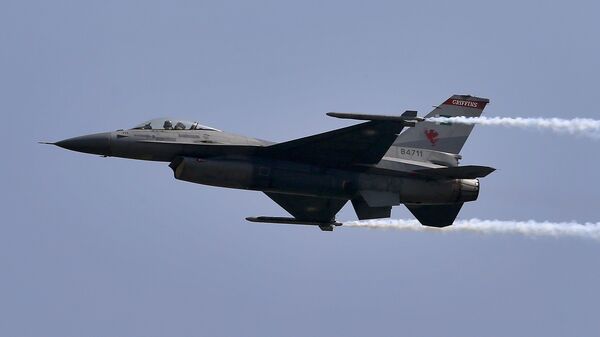New Delhi (Sputnik): The Pakistan Air Force (PAF) failed to achieve its objective when it launched its 27 February retaliatory attack on India, which resulted in an air battle between the neighbouring countries, Indian Air Force Chief Marshal B. S. Dhanoa said on Monday. He also refuted the claim that Pakistani F-16s had breached Indian airspace during the dogfight, as the Pakistan Air Force had claimed on several occasions.
"We have to see the objective of the air strike. Ours was a non-military air strike while Pakistan had aimed to hit Indian military installations. [During the] Balakot counter attack… Pakistan didn't enter our airspace...None of them crossed the Line of Control," Air Chief Marshal Dhanoa told media at an event at the Gwalior air base held to commemorate 20-year anniversary of the Kargil Conflict between Indian and Pakistani forces.
Air Chief Marshal Dhanoa added that India had hit the terror camps, while Pakistan had failed to damage any Indian army bases.
The Pakistan Air Force claimed to have dropped the H-4 Stand-Off Weapon (SOW), a precision-guided glide bomb, on 27 February while retaliating for the 26 February Indian airstrike on Balakot, Pakistan, reportedly to destroy the facilities of the terrorist group Jaish-e-Mohammed (JeM), which had been implicated in a 14 February suicide attack in Jammu and Kashmir state.
Following the retaliatory strike, Pakistan military spokesperson Major Gen. Asif Ghafoor claimed the PAF set out to execute the attack in a way to "make sure that there was no collateral damage".
Nevertheless, the air force chief marshal's statement completely contrasts with the information provided by the Indian External Affairs Ministry, which at the time had lodged a strong protest over the "unprovoked act of aggression by Pakistan against India earlier today (27 February), including by violation of the Indian air space by Pakistan Air Force and targeting of Indian military posts".
Pakistan had reportedly downed two Indian aircraft while the pilot, who managed to eject from MiG-21 Bison, was released a few days later in what Islamabad described as a "peace gesture".
India, however, confirmed the loss of only one of its warplanes and claimed that its downed MiG-21 Bison jet had shot down a Pakistani F-16 during the aerial combat. Pakistan denies having lost any of its fighter jets.
Tensions between India and Pakistan heightened in mid-February, when a total of 40 Indian soldiers were killed by a JeM suicide bomber in Jammu and Kashmir state's Pulwama district. The Indian government vowed to avenge the terror attack, accusing Islamabad of harbouring JeM terrorists. However, Pakistan's government has categorically denied this claim on several occasions.




